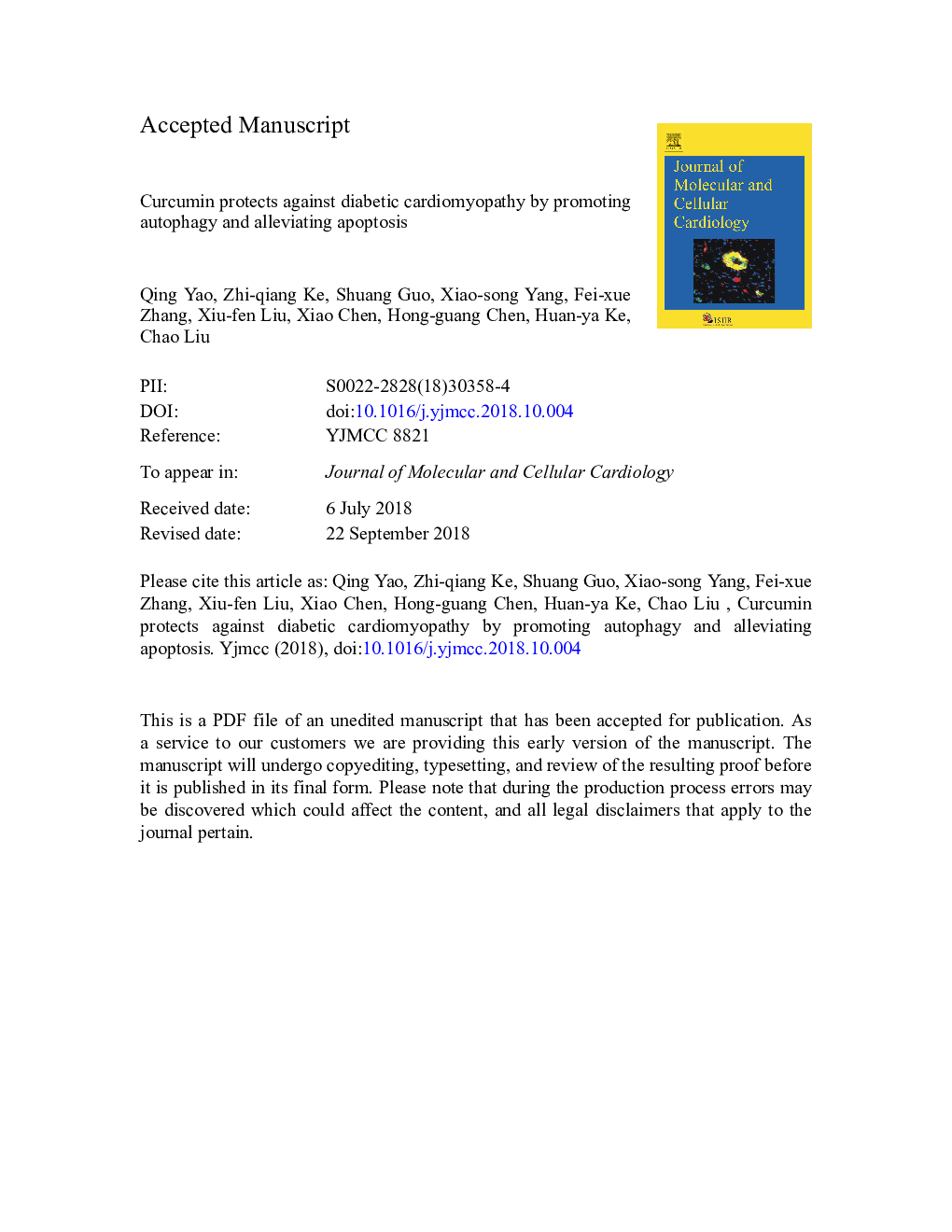| Article ID | Journal | Published Year | Pages | File Type |
|---|---|---|---|---|
| 11009731 | Journal of Molecular and Cellular Cardiology | 2018 | 37 Pages |
Abstract
The effects of curcumin on regulating cardiac apoptosis and autophagy were analyzed in diabetic models both in vivo and in vitro. In vivo, experimental diabetes was induced in mice by low-dose STZ injection combined with a high-fat diet. In vitro, cultured H9c2 cardiomyoblasts were exposed to high d-glucose concentrations combined with palmitate. Our results showed that apoptosis was increased and autophagy was suppressed in the hearts of diabetic mice, which was ameliorated by curcumin treatment, ultimately improving cardiac function. Moreover, the inhibition of autophagy exacerbated apoptotic death in cardiac cells under diabetic condition. Curcumin activated AMPK and JNK1, which phosphorylated Bcl-2 and Bim and subsequently disrupted their interactions with Beclin1, thereby promoting autophagy and alleviating apoptosis respectively. In addition, AMPK-mediated inhibition of mTORC1 pathway likely played a role in regulating autophagy by curcumin under diabetic condition. Our study suggests that curcumin protects against diabetic cardiomyopathy by modulating the crosstalk between autophagic and apoptotic machinery. Modulation of autophagy may be an effective strategy for the treatment of cardiovascular diseases associated with diabetes.
Keywords
PARPp70 ribosomal protein S6 kinase 14E-binding protein 1p70S6K1BOPJnk1mTORC14E-BP1Beclin1AMPK3-MASTZmTOR3-methyladeninec-Jun N-terminal kinaseAutophagystreptozotocinTerminal deoxynucleotidyl transferase dUTP nick end labelingTUNELApoptosispalmitatemammalian target of rapamycinMammalian target of rapamycin complex 1poly (ADP-ribose) polymerasediabetic cardiomyopathyChloroquineCurcumin
Related Topics
Life Sciences
Biochemistry, Genetics and Molecular Biology
Cell Biology
Authors
Qing Yao, Zhi-qiang Ke, Shuang Guo, Xiao-song Yang, Fei-xue Zhang, Xiu-fen Liu, Xiao Chen, Hong-guang Chen, Huan-ya Ke, Chao Liu,
